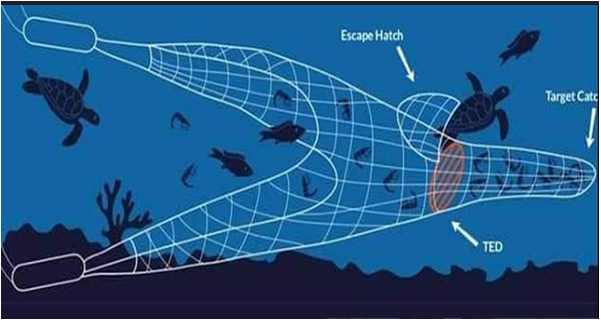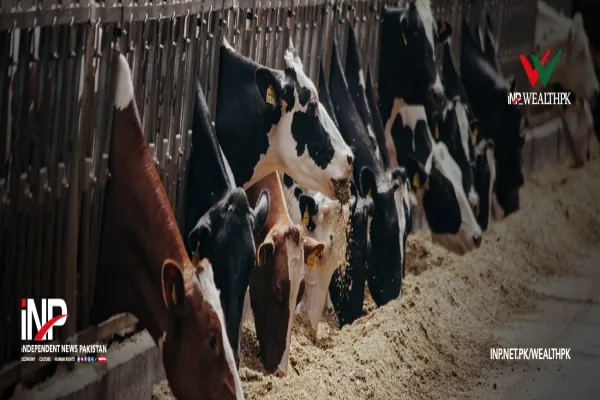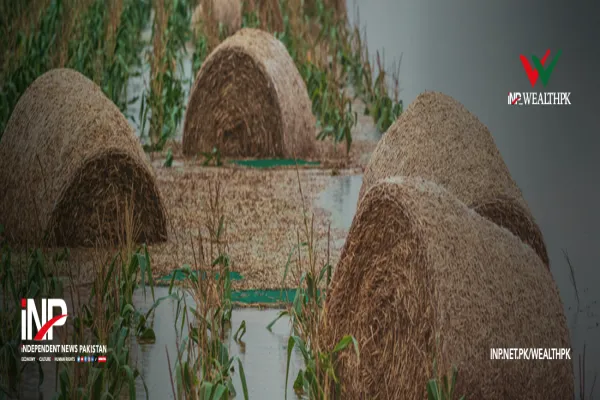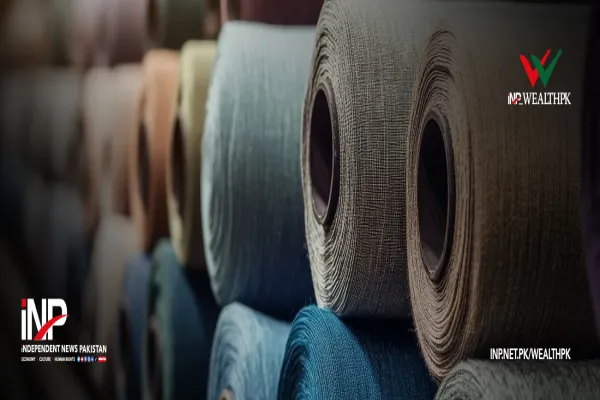i INP-WEALTHPK
Azeem Ahmed Khan
The government has approved Rs90 million to supply 800 to 1,000 Turtle Excluder Devices (TEDs) to fishermen to help protect endangered turtles from being trapped in nets, an official at the Ministry of Maritime Affairs told Wealth Pakistan.

Fishermen will also be trained to use the device, and a ceremony will be held soon in this regard, he added. However, the decision has drawn criticism from the industry. Faisal Iftikhar, former chairman of Pakistan Fisheries Exporters Association (PAKFEA), said he was surprised to hear that the government would provide TEDs to fishermen.
“TED is not a complicated device. It is a welded iron ring with a net inside that allows turtles to escape while keeping fish trapped. Locally, it can be made from Rs12,000 to Rs15,000. Why spend Rs90 millions of taxpayers’ money on them?” Iftikhar questioned. Speaking to Wealth Pakistan, he argued that trawler owners, who invest Rs50-80 million in each vessel and spend Rs3.5 million on rations and diesel for a voyage, could buy TEDs themselves.
“These are not poor fishermen but resourceful people, owning fleets of 10 to 12 boats worth millions of rupees. The government should enforce regulations instead of handing out ‘free devices’ to them,” he suggested. Urging the government to tighten regulations instead of spending public money ‘unnecessarily’, he said, “Just as a person cannot drive a car without a licence, boats should not be allowed to fish without TEDs. It should be the boat owner’s responsibility.”
Major seafood-importing countries, including the United States, mandate the use of TEDs in trawlers to safeguard endangered sea turtles. Without adopting these devices, Pakistani shrimp exports face bans and trade restrictions, costing the country valuable foreign exchange. The Arabian Sea hosts threatened species such as green turtles, and their protection could boost Pakistan’s global standing in marine conservation. TEDs, designed to let turtles escape while keeping shrimp and fish catches intact, are seen as a key step towards sustainable fishing practices.
Iftikhar dismissed suggestions that TED could be made of aluminum, warning that nets under high pressure would not hold. “TEDs have always been made of iron and there is no high-tech thing about it,” he said. PAKFEA former chairman also criticised the ‘incompetence’ of fisheries authorities, recalling past inspections by US teams.
Pakistan’s exports have already suffered from bans, he observed. Shrimp, the only seafood restricted under US rules, now largely goes to China, Vietnam, and Gulf states. “We remain just a raw material supplier, while other countries have developed their value-added industries.”
He pointed to the findings of the Fisheries Resources Appraisal Programme, carried out over 10-12 years with FAO support, showing that 80% of Pakistan’s marine stock has depleted. Pakistan’s marine sector has been left with low-value catches such as squid, cuttlefish, and grey mullet due to years of overfishing, a trend seen globally from Japan to Europe, Iftikhar said. “We are now at the bottom of the food chain, relying now on squid, cuttlefish, and grey mullet.”
While other countries have shifted to shrimp farming and aquaculture, Pakistan has failed to keep pace, he observed. India earns about $10 billion from farmed shrimp, sending $2 billion worth to the United States; Bangladesh generates $4 billion, Vietnam $8 billion, and Iran about $500 million, but Pakistan produces almost no farmed shrimp. Punjab launched a 100-acre pilot project last year using seed from my company, but there is no national effort,” Iftikhar said.
Pakistan has a four-year exemption from new US rules on protecting marine mammals such as dolphins, which come into effect in 2026, Iftikhar said. But he cautioned that inspectors may visit at any time and revoke the waiver.
The former chief of the fish exporters’ body criticised the Marine Fisheries Department for lacking technical expertise and failing to evolve over the years. He noted, however, that the newly-appointed director general was showing commitment by engaging with stakeholders.
Credit: INP-Wealthpk







